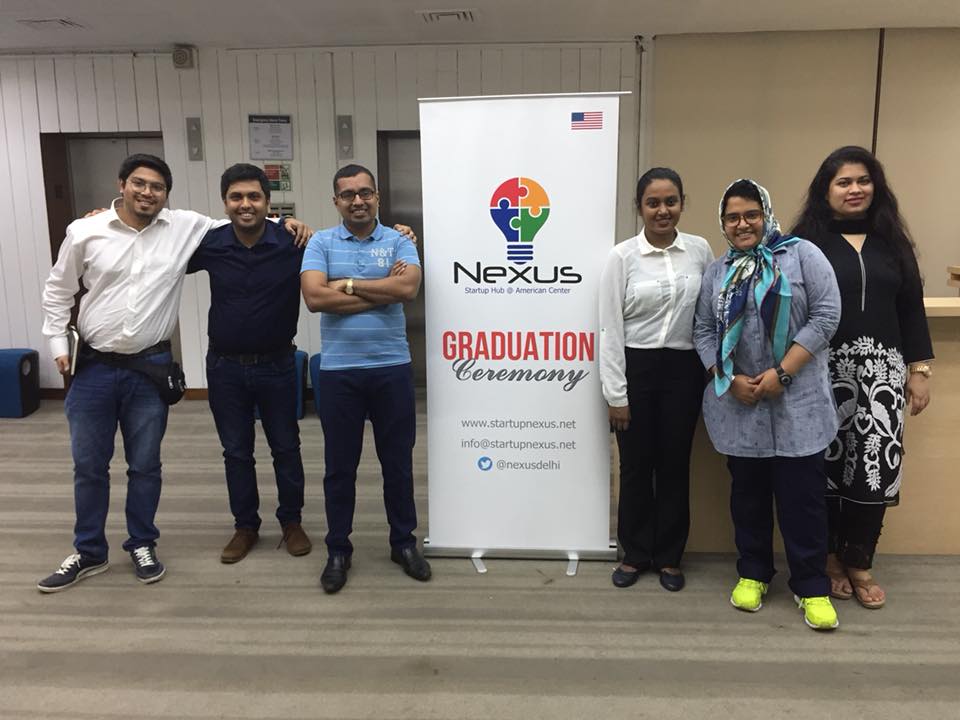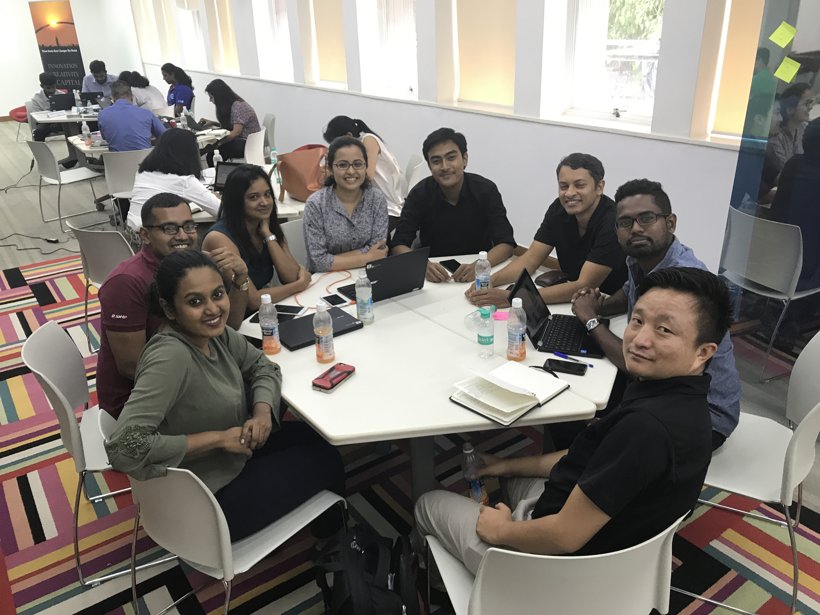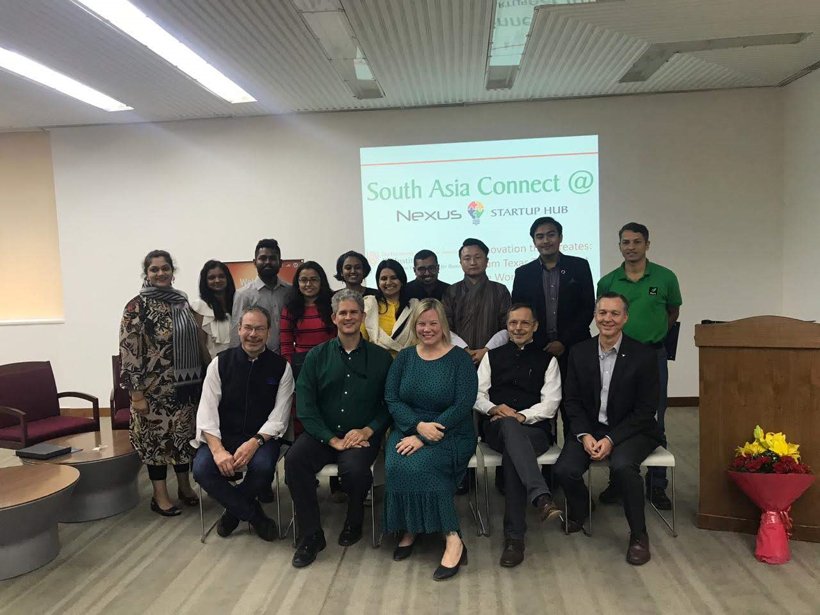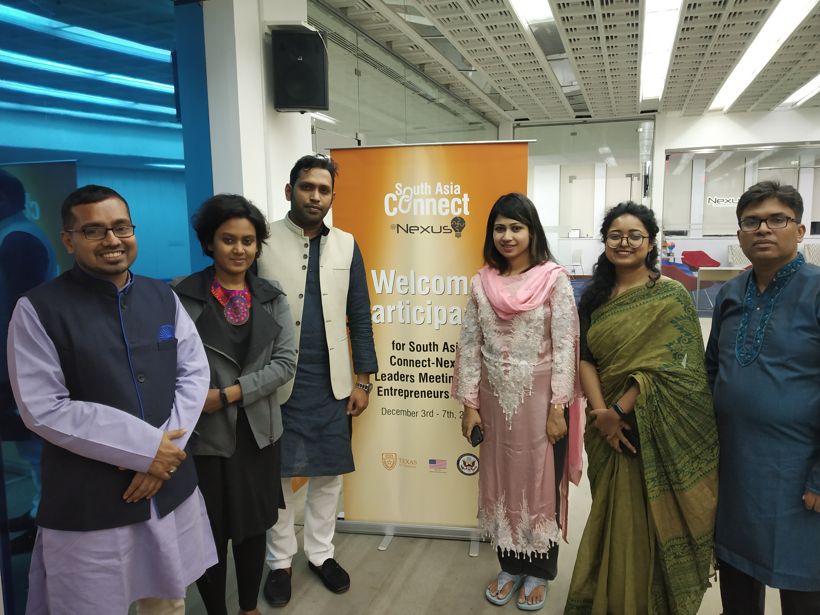
On December 30th, 2018 Bangladesh had her national election. The ruling party secured a consecutive third term with an overwhelming majority. Critics are labeling it “farce”. The election manifesto of the ruling regime, titled “Bangladesh on March towards Prosperity” focuses on 33 sectors to be dealt with two strategic plans. It seems to focus on economic development. It remains to be seen on the dedication of the government to focus on more wealth creation for its citizens, as opposed to wealth redistribution to the chosen elite.
One of the first leaders to congratulate the Prime Minister of Bangladesh was her Counterpart from India. It brings to mind a key cornerstone fact in the region. According to the World Bank, the inter-region trade in South Asia is less than 5%, whereas, in East Asia, it is 35 % and, in Europe, it is at 60%. Bangladesh can capitalize on the fact that there is room to triple its regional trade, by reducing barriers. Interregional trade can be increased by creating entrepreneurs who would conduct business within the region. Visa on arrival for Bangladeshi citizens visiting India, would be awesome!
One can argue that there is a moral concern for entrepreneurs engaging in business. Bangladesh, according to all major rating institutions routinely finds itself among the most corrupt countries in the world. For example, Transparency International ranked Bangladesh 143 out of 180 countries in their “corruption perception index 2017” (CPPI 2017). This can deter prospective businesspeople venturing into a career as an entrepreneur in good conscious. Nevertheless, with technological improvement, it is possible to increase accountability, transparency, good governance and rule of law. For example, local nonprofits development organizations were known to skim money from funding partners. However, with updated management information systems available, say through technology, more effective monitoring and evaluation procedure can now be placed. Development organizations have a role to play in wealth creation, along with the private sector.
According to the World Bank, the inter-region trade in South Asia is less than 5%, whereas, in East Asia, it is 35 % and, in Europe, it is at 60%. Bangladesh can capitalize on the fact that there is room to triple its regional trade, by reducing barriers. Interregional trade can be increased by creating entrepreneurs who would conduct business within the region.

Bangladesh has high income disparity. Oxfam, an international development organization, in their “commitment to reduce inequality index 2018” (CRI 2018) report ranks Bangladesh 148 out of 157 nations. It is estimated that about 20% of Bangladesh is considered middle class as of 2015.
There is room to increase the middle class and reduce the lower class by creating employment. This can be done by engaging youth, who are potentially entering the job market. Bangladesh has a bulging youth population. There is a scope of enabling and empowering the local youth population by engaging them in entrepreneurship for economic development. Essentially, this means that by creating a platform where youth with an idea is given an opportunity to conceive them into reality.
Bangladesh seems to underutilize its human capital. According to the United Nation Population Fund (UNFP), 67% of the population in 2018 is aged between 15 and 64 making them eligible to work. As of 2016, there is a 51.4 dependency ratio. The World Factbook states that the median age of Bangladeshis is 26 years old. But, the International Labor Organization (ILO) puts youth unemployment at 11.4% in 2017. High unemployment of youth can result in anti-state and subversive activities. But, if trained properly and innovation encouraged, they can be an asset to the nation. They can be engaged as entrepreneurs in the various startup at various capacities.
However, to boost startups entrepreneur have to raise funds for their venture. Once he or she has a concept, there is a financing requirement to move on from one stage of a business to another. Pre-seed, Seed, Early Stage and so on. The infrastructure in Bangladesh can at times be less appealing to potential investors. The Word Bank ranks Bangladesh 176 out of 190 economies in “ease of doing business” in their Doing Business 2019 report. Hence, for all prospective entrepreneurs, there is a fear of being unable to raise capital. For investors investment in economies where it is easy to do business may seem a profitable and secure option.
Other major challenge entrepreneurs in Bangladesh face is the lack of skilled human resources. Essentially, among other things, this makes Bangladeshi startups less competitive. The Global Competitive Index 2018 (GCI 2018) by the World Economic Forum ranks Bangladesh 103 out of 140 countries. One key factor is that our human resource seems to have limited capacity. We seem to focus too much on cheap labor, as opposed to paying a premier wage to high skilled labor that is more productive, efficient and effective. The market economy cannot optimally function if there is a bottleneck due to the inability of business to scout talent.
This means that in a country with a population of over 160 million we rely on importing skilled experts. According to the Pew Research Centre, in 2016 foreigners remit around USD 2 billion a year from Bangladesh from a pool of legally working 85,000 people. Our executives, technical people need more exposure to international skill building mechanisms.
One can attribute responsibility for this lack of skilled human resources to the outdated education system. By and large, academic institutions in Bangladesh still follow what Paulo Freire would describe as banking model of education. This means that creativity is NOT encouraged and out of the box thinkers are NOT produced. The “Global Innovation Index 2018” (GII 2018) by knowledge partners such as INSEAD ranks Bangladesh 126 out of 129 countries. Therefore, as the traditional trade system becomes obsolete, the innovative alternative mechanism is not being replaced at a competitive pace in the broad-based market economy. If we host foreign entrepreneurs and ecosystem builders and visit their neck of the woods, we can increase our out of box thinking by being exposed to different ways of doing things.
Ecosystem builders realize the scenario and have taken some proactive measures. The government of Bangladesh launched “Startup Bangladesh”. BRAC, the international development organization has “Urban Innovation Challenge”. Telecommunication giant Grameen Phone launched GP Accelerator. Another great incentive that addresses this challenge of lack of innovation in education is the Young Founders School. It launched its first-weekend boot camp in Dhaka during the month of December 2018 with a view to educating young learners (12-17 years old) on entrepreneurship. There are prime examples of all separate ventures.
Other major challenge entrepreneurs in Bangladesh face is the lack of skilled human resources. Essentially, among other things, this makes Bangladeshi startups less competitive. The Global Competitive Index 2018 (GCI 2018) by the World Economic Forum ranks Bangladesh 103 out of 140 countries. One key factor is that our human resource seems to have limited capacity. We seem to focus too much on cheap labor, as opposed to paying a premier wage to high skilled labor that is more productive, efficient and effective. The market economy cannot optimally function if there is a bottleneck due to the inability of business to scout talent.
In spite of downtrodden statistics, Bangladesh has a long history of solving community problems through entrepreneurship.

There is the story of microcredit that is generally considered to be originated with Grameen Bank back in 1983. A child of a research project in 1976, it has awarded Professor Dr. Muhammad Yunus the Nobel Prize in 2006. A challenge they addressed is the feminization of poverty. Such success shows it is possible to resolve problems in Bangladesh through private sector intervention.
There have been sporadic attempts by leaders to address challenges. In 2015 a Grand STEM Innovation fair was organized that was attended by US Ambassador Marcia Bernicat.
Again, Dhaka has some major challenges. The Economic Intelligence Unit has ranked Dhaka, as the 2nd least livable city. The traffic in Dhaka is an example of issues faced by city dwellers. Brac Institute of Government and Development commissioned a study where it says traffic congestion in Dhaka eats up around 5 million working hours daily. It costs the country USD 11.4 billion every annually. The World Bank, in a report titled “, Toward Great Dhaka: A New Urban Development Paradigm Eastward” in 2018 stated that the average driving speed is 7 km/hour. Against this backdrop comes “Pathao” (literally translates to send it). It is a transportation technology company, established in 2015, that has ventured into E-commerce, merchant, courier and food delivery services. In 2018 they have risen series B funding of USD 10 million and have expanded to Nepal. The fact that Pathao moved to Nepal before coving other cities in Bangladesh may be seen as room to build the entrepreneurial ecosystem in other parts of the country.
As some Bangladeshi ventures look abroad, there are people who look to invest in Bangladesh. They are the Bangladesh diaspora community residing abroad. Although it is hard to find exact data, the World Bank does put the 2017 migrant stock of Bangladesh at 1.5 million. As per Bangladesh Bank, the remittance by Bangladeshi expatriates for the year 2016-2017 is USD 14.98 Billion. The deshi diaspora community often harbors some patriotic emotions towards their land of origin. Hence, entrepreneurs and leaders can capitalize on the interest, skill, capital and other resources available to non-resident Bangladeshis or, person of Bangladeshi origin. This community can be utilized as a tool attracts investments into Bangladesh economy. The fact that Brand Finance in its Nation Brands 2018 report ranks Bangladesh at 39 out of 100 is a plus point. A program that appreciates the potential of Bangladesh in business is the South Asia Connect (SAC).

In 2018, SAC incentive came into effect as a sister program of the Nexus Startup Hub. It ran out of the American Centre in New Delhi, India. The implementation partner of this venture was the IC2 Institute, a “think and do tank” of the University of Texas, Austin. The US Department of State has generously supported this program bringing in entrepreneurs and leaders from Nepal, Sri Lanka, Bhutan, India, and Bangladesh under one platform. Such interventions help flourish a robust entrepreneurial ecosystem in this region and Bangladesh, can definitely prosper by similar projects.
[su_divider top="no" divider_color="#adacab" link_color="#edde29" size="1"][/su_divider]
About the Author: Mohammed Tanvir (Nick) Mosharraf is engaged as a Manager, Program and Partnership for SpeedTrust (Society for People’s Education, Empowerment and Development Trust), a civil society organization. In 2018 he was selected as a “Country Leader” for the SAC program by UT Austin’s IC2 Institute. He was part of the Bangladeshi delegation to the Global Entrepreneurship Summit 2017, Hyderabad India.
Cover photo: The first delegation of entrepreneurs and leaders from Bangladesh to New Delhi for SAC program
